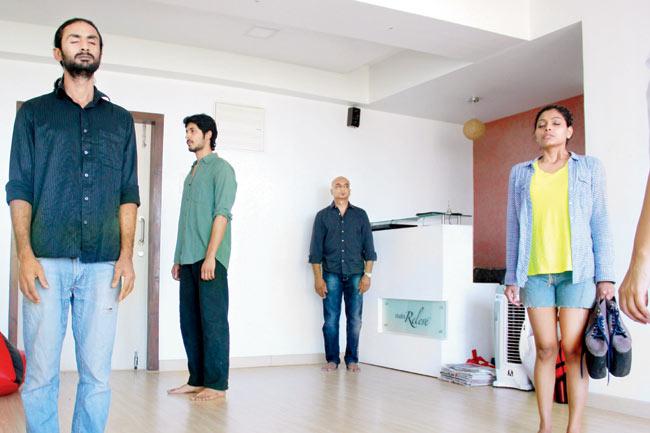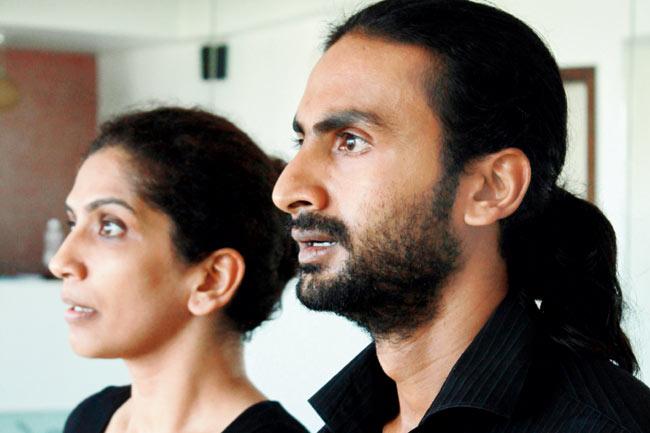A new play, Secret Society: Children of Divorce, delves into stories of broken relationships from the eyes of children

Inspired by the lives of people who have lived through the traumas of a broken home, Secret Society: Children of Divorce is the debut play of theatre director-writer, Shivam Sharma. A media graduate from Mumbai’s KC College, his play explores the sub-culture of families broken by divorce, from the eyes of the children.
ADVERTISEMENT

Stills from the rehearsal of the play
“We have seen lots of works on broken relationships and divorces, but few present the story from the children caught in between,” believes Sharma.
The play is inspired from real-life stories, but it’s equally a work of fiction as it is real. “Most stories are inspired from the lives of people I interacted with, but with added dramatic effects to portray real emotions,” he adds. Without this, he shares, it would have read like a documentary. He wasn’t keen to explore this idea, and so there are abstractions, physical movements, songs and theatrical indulgences. The cast includes Nishank Verma, Avnish Mehra, Divya Unny, Veena Nair, Captain Sanjay Nath, Amrita Bagchi, Naireet Basak and Gunjan Malhotra.

The 24-year-old writer-director worked on the story for nearly four months, and the final script is the 20th draft of the original. “Like with most plays, this too was an emotional journey because many cast members had been through similar situations. Some even broke down during rehearsals. At the reading, some suggested changes based on their experiences, and abilities,” he says.
But why call it a ‘secret society’? Sharma explains that the idea emerged from the fact that there are so many secrets inside us, which we want to share but don’t. “The play is about a bunch of grown-up children, who are full of stories but don’t reveal these. The common thread is that they are from broken homes. As they bond, they share stories, which they wouldn’t have, otherwise. Things change; their personalities develop,” adds Sharma.
The play’s intent was not to comment on society, and divorces, but to help adults connect with the characters. “We hope adults put themselves in the shoes of the characters, and realise that they need to sort things amicably, for themselves and their children,” he maintains.
 Subscribe today by clicking the link and stay updated with the latest news!" Click here!
Subscribe today by clicking the link and stay updated with the latest news!" Click here!






